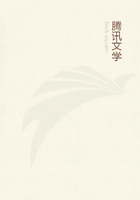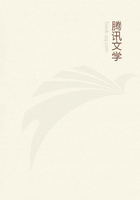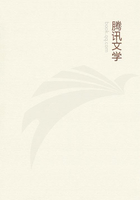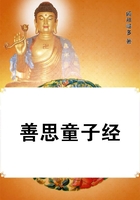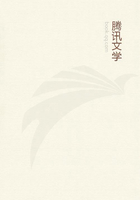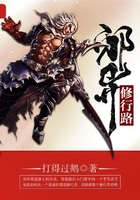Toward the close of his term in January, 1891, when the Liberals declined to support his candidate for the presidency, Balmaceda, furious at the opposition which he had encountered, took matters into his own hands. Since the Congress refused to pass the appropriation bills, he declared that body dissolved and proceeded to levy the taxes by decree. To this arbitrary and altogether unconstitutional performance the Congress retorted by declaring the President deposed. Civil war broke out forthwith, and a strange spectacle presented itself. The two chief cities, Santiago and Valparaiso, and most of the army backed Balmaceda, whereas the country districts, especially in the north, and practically all the navy upheld the Congress.
These were, indeed, dark days for Chile. During a struggle of about eight months the nation suffered more than it had done in years of warfare with Peru and Bolivia. Though the bulk of the army stood by Balmaceda, the Congress was able to raise and organize a much stronger fighting force under a Prussian drillmaster. The tide of battle turned; Santiago and Valparaiso capitulated; and the presidential cause was lost. Balmaceda, who had taken refuge in the Argentina legation, committed suicide.
But the Balmacedists, who were included in a general amnesty, still maintained themselves as a party to advocate in a peaceful fashion the principles of their fallen leader.
Chile had its reputation for stability well tested in 1910 when the executive changed four times without the slightest political disturbance. According to the constitution, the officer who takes the place of the President in case of the latter's death or disability, though vested with full authority, has the title of Vice President only. It so happened that after the death of the President two members of the Cabinet in succession held the vice presidency, and they were followed by the chief magistrate, who was duly elected and installed at the close of the year. In 1915, for the first time since their leader had committed suicide, one of the followers of Balmaceda was chosen President--by a strange coalition of Liberal-Democrats, or Balmacedists, Conservatives, and Nationalists, over the candidate of the Radicals, Liberals, and Democrats. The maintenance of the parliamentary system, however, continued to produce frequent alterations in the personnel of the Cabinet.
In its foreign relations, apart from the adjustment reached with Argentina, Chile managed to settle the difficulties with Bolivia arising out of the War of the Pacific. By the terms of treaties concluded in 1895 and 1905, the region tentatively transferred by the armistice of 1884 was ceded outright to Chile in return for a seaport and a narrow right of way to it through the former Peruvian province of Tarapaca. With Peru, Chile was not so fortunate. Though the tension over the ultimate disposal of the Tacna and Arica question was somewhat reduced, it was far from being removed. Chile absolutely refused to submit the matter to arbitration, on the ground that such a procedure could not properly be applied to a question arising out of a war that had taken place so many years before. Chile did not wish to give the region up, lest by so doing it might expose Tarapaca to a possible attack from Peru. The investment of large amounts of foreign capital in the exploitation of the deposits of nitrate of soda had made that province economically very valuable, and the export tax levied on the product was the chief source of the national revenue. These were all potent reasons why Chile wanted to keep its hold on Tacna and Arica. Besides, possession was nine points in the law!
On the other hand, the original plan of having the question decided by a vote of the inhabitants of the provinces concerned was not carried into effect, partly because both claimants cherished a conviction that whichever lost the election would deny its validity, and partly because they could not agree upon the precise method of holding it. Chile suggested that the international commission which was selected to take charge of the plebiscite, and which was composed of a Chilean, a Peruvian, and a neutral, should be presided over by the Chilean member as representative of the country actually in possession, whereas Peru insisted that the neutral should act as chairman. Chile proposed also that Chileans, Peruvians, and foreigners resident in the area six months before the date of the elections should vote, provided that they had the right to do so under the terms of the constitutions of both states. Peru, on its part, objected to the length of residence, and wished to limit carefully the number of Chilean voters, to exclude foreigners altogether from the election, and to disregard qualifications for the suffrage which required an ability to read and write. Both countries, moreover, appeared to have a lurking suspicion that in any event the other would try to secure a majority at the polls by supplying a requisite number of voters drawn from their respective citizenry who were not ordinarily resident in Tacna and Arica! Unable to overcome the deadlock, Chile and Peru agreed in 1913 to postpone the settlement for twenty years longer. At the expiration of this period, when Chile would have held the provinces for half a century, the question should be finally adjusted on bases mutually satisfactory. Officially amicable relations were then restored.
While the political situation in Bolivia remained stable, so much could not be said of that in Peru and Ecuador. If the troubles in the former were more or less military, a persistence of the conflict between clericals and radicals characterized the commotions in the latter, because of certain liberal provisions in the Constitution of 1907. Peru, on the other hand, in 1915guaranteed its people the enjoyment of religious liberty.

